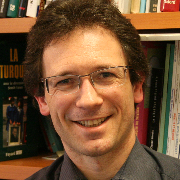Chercheur
Christophe Jaffrelot
Senior researcher, CNRSPhone: +33158717034 - christophe.jaffrelot@sciencespo.fr
He holds degrees from Sciences Po (1985), Sorbonne University (1986), EHESS (1986) and INALCO (National Institute for Oriental Languages and Civilisations - 1990) and a Ph.D. in political science from Sciences Po (1991).
He joined CNRS in 1991, was awarded the CNRS Bronze Medal in 1993 and became a CNRS senior research fellow in 2002. He has been president of the Political Science section of the French National Committee for Scientific Research (CNRS) from 2012 to 2016.
He is the senior editor of a CERI-Sciences Po book series, Comparative Politics and International Studies, published by Hurst (London) and Oxford University Press (New York). He has been the editor-in-chief of Critique internationale (1998-2003) and then his director (2003-2008).
He belongs to the editorial board of several journals (incl. India Review, Asian Survey, Nations and Nationalism and International Political Sociology).
He chairs the scientific council of the French Institute (UMIFRE - MAE/CNRS) in Asia. He is a permanent consultant with the Policy Planning Staff of the French Ministry of Foreign Affairs and a Nonresident Scholar with the Carnegie Endowment for International Peace (Washington DC).
He has been visiting Professor at Columbia University, Princeton University, Yale University, Johns Hopkins University and Montreal University. He has been Global Scholar at Princeton University (2012 - 2015) and teaches at the King's India Institute (London) since 2012.
He is a member of the scientific councils of the Südasien Institut of Heidelberg University, of the Center for the Study of Multilevel Federalism (New Delhi) and of the South Asia Center of Göttingen University.
He’s a member of the Academic Council of Ashoka University, where he serves as chairman of the Trivedi Center for political Data.
His current research deals with the sociology of the Indian political personnel (including the Members of Parliament and the Members of the Legislative Assemblies), the Dargahs of Ajmer, the India-Pakistan relations, the political history of Gujarat (from the point of view of the relations between politicians and businessmen in particular) and populist politics with special reference to the “Modi phenomenon”.
Christophe Jaffrelot and Bernard Haykel are the codirectors of the major three-year research project Muslims in India on Muslim communities in India launched by Sciences Po, the university of Columbia and he university of Princeton thanks to the generous support of the Henry Luce Foundation.
Theories of nationalism and democracy, Mobilization of the lower castes and untouchables in India, Hindu nationalist movement, Ethnic conflicts in Pakistan, Mobilization of the lower castes and untouchables in India, Hindu nationalist movement, Ethnic conflicts in Pakistan
Theories of nationalism and democracy, Mobilization of the lower castes and untouchables in India, Hindu nationalist movement, Ethnic conflicts in Pakistan,
-
Keywords

- Modi's India: Hindu Nationalism and the Rise of Ethnic Democracy (Ouvrage)
- South Asia and the Taliban: Ground Zero for a New Cold War? (Contribution à un site web)
- L’Asie du Sud et les talibans : l’épicentre d’une nouvelle guerre froide ? (Contribution à un site web)
- The Biometric Identification of 1.3 Billion Indians. Interview with Christophe Jaffrelot and Nicolas Belorgey (Contribution à un site web)
- Identifying 1.3 Billion Indians Biometrically. Corporate World, State and Civil Society (Working Paper)
- Covid-19, les causes du désastre indien (Article dans une revue sans comité de lecture)
- Du Hindu Rashtra au Hindu Raj : l’émergence d’une «démocratie ethnique» de droit (Article dans une revue sans comité de lecture)
- India’s Second Wave: A Man-Made Disaster? (Contribution à un site web)
- L'Indo-Pacifique : quels contours ? quels enjeux ? (Contribution à un site web)
- Révoltes paysannes : un test politique et international pour l’Inde (Contribution à un site web)
- La fin d’un “ parti-Etat ” ? Le Congrès et la démocratie indienne
- Inde : l'Etat de droit en procès
- L’Inde, le G20 et la gouvernance mondiale
- Le Sangh Parivar et la diaspora hindoue en Occident : Royaume-Uni, États-Unis et Canada
- For a theory of nationalism
- L'Etat face au défi maoïste en Inde
- La relation Pakistan – Etats-Unis : un patron et son client au bord de la rupture ?
- Secularization without Secularism in Pakistan
- Les élections indiennes : une surprise lourde de sens, mais pas un séisme
- Nationalisme hindou : le retour des radicaux
- Les violences entre hindous et musulmans au Gujarat (Inde) en 2002 : émeutes d'Etat, pogromes et réaction anti-jihadiste
- Prolifération nucléaire : les Etats-Unis face à la filière pakistano-nord coréenne
- La situation au Pakistan après le 11 septembre
- Inde : un émergent en quête d’un second souffle Du bureau du monde à l’atelier du monde ?
- Les BRICS : chronique d’une mort annoncée… mais sans cesse reportée
- Crony Capitalism in India under Narendra Modi
- Four questions on India. An Interview with Christophe Jaffrelot
- Modi’s Strategy, Rise, and Rule, from Gujarat to the Indian Nation State: Interview with Christophe Jaffrelot
- The Concept of the Indo Pacific in the Geostrategic Discourse
- Who are the Contemporary Populists in Power? Interview with Alain Dieckhoff, Christophe Jaffrelot and Elise Massicard










